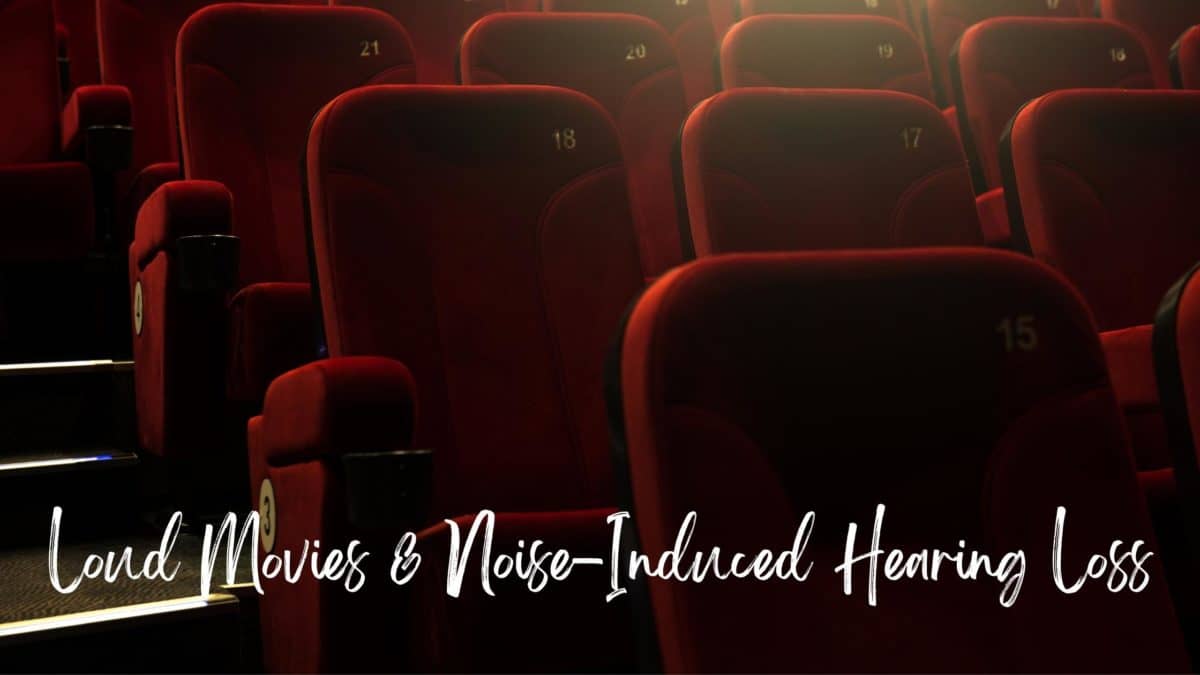- The Connection Between Hearing Loss and Dementia - July 30, 2024
- The Advantages of Rechargeable Hearing Aids - July 16, 2024
- How to Enjoy Music Festivals While Protecting Your Hearing - July 3, 2024
If there is anything we’ve learned after a year or two of not being in many movie theaters, due to the COVID-19 pandemic, is how incomparable the big screen experience is. There is nothing like it! The standard TV in US homes is 65” and while that may seem big it’s nothing compared to the all-encompassing feeling that big screen movies provide. There is the thrill of seeing things larger than life with friends or family while eating a bag of buttery popcorn, gummy worms, and settling in for an adventure while the seats seem to rumble from the Dolby surround sound. However, it is important to also be aware of the level of noise in the theater. If the sound is loud enough that you can feel it in the core of your stomach, it’s probably damaging your ears as well.
How Loud is Too Loud?
Sound is measured in decibels and any sound over 85dB is loud enough to damage your ears. It takes a constant exposure of eight hours or more to cause hearing damage at 85dB, but as the decibels rise, this quickly changes. Each rise in decibel signifies 10 times louder than before. A decibel reading of 95dB is 100 times louder than 85dB and can cause the same amount of damage in just under an hour.
Noise-Induced Hearing Loss
You may think that you’re too young to have hearing loss, but the truth is hearing loss affects people across generations, particularly due to exposure to sounds that exceed safe listening levels. Sound is collected by our outer ear and the vibrations travel down the ear canal to our inner ear. Within our inner ear are tiny hair-like cells called stereocilia which transform vibrations of sound into electrical impulses sent to the brain. This is where speech and sounds are identified.
When sounds surpass a safe listening threshold for too long the vibrations become too much for the stereocilia, which can fracture and become destroyed against the membrane walls which hold them. This can leave people with irreversible hearing loss, making it difficult to follow conversations and reducing alertness in environments.
Going to the Movies
The movies are an immersive experience where it’s easy to lose yourself in the story, the visuals, soundtrack, and excitement. But you could lose much more than that. Movie theaters often turn up the volume to dangerously loud levels. The average range for movies rests between 80-100dB. While most a movie usually won’t’ stay at 100 decibels it only takes around 15 minutes of constant exposure for damage to occur. If you’ve ever left the theater with ringing in your ears, this means the movie was loud enough to damage your ears irreversibly.
Come Prepared to the Theater
While there are regulations in place to monitor sound levels in movie theaters, these standards control the overall volume of a film, not the spikes in sound during loud scenes. Even if a film is mostly under 85 dB, an action movie full of gunfire and explosions can cause some damage in a short time. If you consider yourself a movie buff then it’s a good idea to come prepared. To get the most out of the movie theater for years to come, bring hearing protection to the theater. It won’t stop that rumbling feeling in your stomach during highly sonic scenes, but it can ensure that you won’t leave the theater with permanent hearing damage. Most foam and fitted earplugs can limit the decibel level from 15-33dB depending on the model.
Testing Sound Levels
If you are concerned about the sound levels of movies you love for you or your kids then it’s a great idea to test the decibel level during the movie. There are a number of free decibel reader apps available for download on most smartphones. Simply hit the meter and get an average sound reading. If the reading is below 85dB you are most likely all right.
Addressing Hearing Loss
While hearing loss is irreversible it can be treated with hearing aids. If you are concerned that one too many movies have finally damaged your hearing it can’t hurt to know for sure. We can test your hearing to diagnose the degree of your hearing ability. If a hearing loss is detected, we can help you go over your options and help you find the best solution for all your hearing needs.

